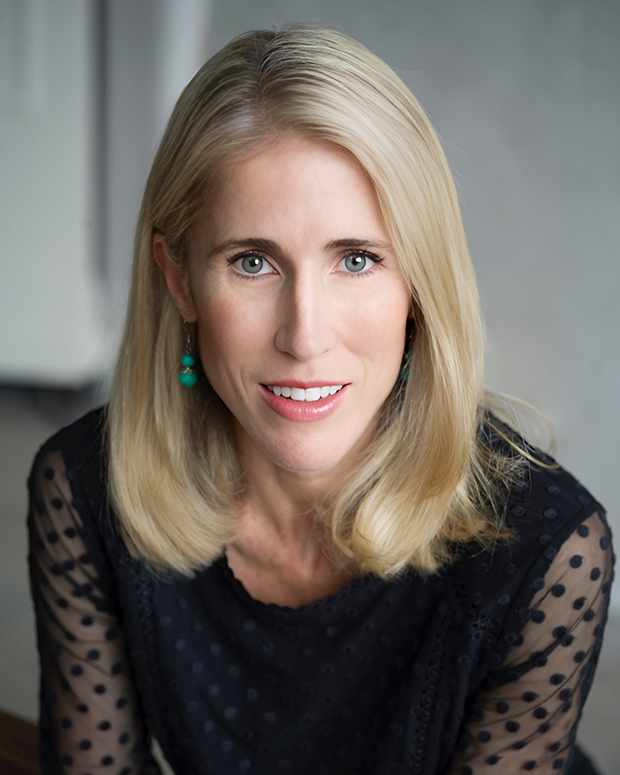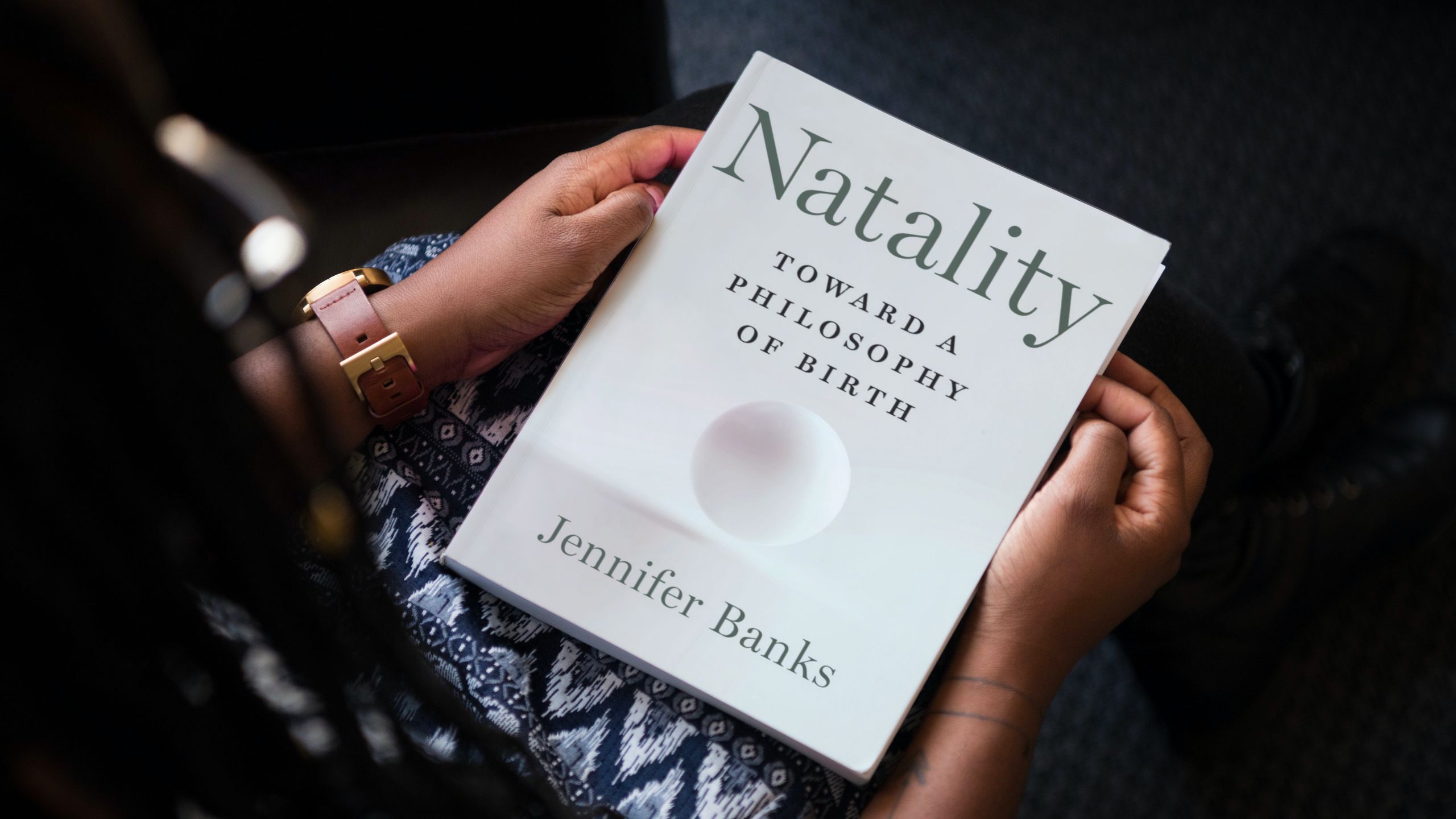Natality: Toward a Philosophy of Birth
Jennifer Banks
W.W. Norton & Company
251 Pages
Throughout the darkest months of the pandemic, I found myself binge-watching The Great British Bake Off and following the ever-affable Monty Don as he showed me around his garden in the BBC’s Gardener’s World. I felt a bit simple-minded for not wanting edgier fare, but when I spoke with friends, I found that they, too, were deep into similar content. We watched watercolor tutorials, bread-making videos and so many lockdown-dance videos, we could have started our own traveling sideshow.
Now, reading Jennifer Banks’ Natality: Toward a Philosophy of Birth, I have some insight into why. It wasn’t just about avoiding unpleasantness, mentally putting our hands over our ears to shut out the world (though, judging by the number of wine glasses seen in our Zooms, there was plenty of that as well); it was that we needed some creation in our lives. Amid all that death, we needed birth.

Birth is humanity’s greatest unexplored subject, Jennifer Banks writes in her excellent Natality: Toward a Philosophy of Birth. Banks, a senior executive editor at Yale University Press, begins to explore the subject by looking back at humanity’s earliest writings, where, in 2300 BCE, the first identified author sang hymns to the goddess of childbirth, linking birth to creativity, divine powers and her hope for change in the world. In Banks’s introduction—which, for my money, by itself is worth the price of admission—the author writes that birth, for all its recurring presence in the written record, has played second chair to death as humanity’s defining experience. Mortal creatures who wrestle with our own mortality, we are born and then pffft let birth recede into memory, “to that forgotten realm where uteruses, blood, sex, pain, pleasure and infancy constellate.”
In flipping the script, Banks writes that birth is immense, that birth has existential, moral and theological significance at least as great as death. “What does it mean that the greatest power humans have had—the power to create another human being—has been relegated in nearly all periods and all places to a secondary status, turned into a task to be performed by an underclass of people assigned that task on account of their gender?”
The book isn’t a paean to some sentimental or idealized image of motherhood—which, as Banks writes, can be “superficially championed but deeply undermined by mothers’ cultures” when it comes time to pay the bill for the maternity ward, offer maternity leave, feed the mothers’ children or come up with child care. The book is instead an investigation of birth itself—not just childbirth, but birth as creation and creative renewal; an embrace of life and the recognition that each of our births indelibly shape not just our own lives but human life itself. In a provocation that is both wide-ranging and deep, she asks for a set of principles different from the “death-drive that runs deep in Western societies,” imagining a culture less reconciled to its own extinction, “rooted in gestation, intimacy, vulnerability, growth, creativity, reciprocity, change and otherness.”
Banks explores the idea of birth through the works of seven prominent Western thinkers: Hannah Arendt, Friedrich Nietzsche, Mary Wollstonecraft, Mary Shelley, Sojourner Truth, Adrienne Rich and Toni Morrison—who have wrestled with the idea of birth in their own eras and shaped our understanding of our own humanity. She offers their thinking as a powerful antidote to the nihilism with its fatalism, paralysis, cynicism and despair that are the “prevailing features of 21st century life.”
Hannah Arendt knew a thing or two about nihilism and despair. Born in 1906 in Germany to a family of left-leaning, prosperous Jews, a circumstance that ultimately would see her stripped of citizenship and belonging, with her simple right to exist taken away. During her childhood years while she was running outdoors, reading books and “blithely singing off key,” she and her family were being turned into the “scum of the earth—an undesirable” by anti-Semitic propaganda.
Arendt had been interested in birth before the war, writing that birth and “the miracle of our creative beginnings” are what shape humans and give us our capacity to act creatively in the world. After the war, despite surviving years of unimaginable loss and betrayal, she continued to engage with the idea of birth, now as less of an existential concept than a political one: creative renewal as an act of resistance. She wrote of the connections between birth and freedom and found one English word to encompass that thinking: “natality,” the “miracle that saves the world,” one that decades later gave Banks the central theme for her challenging book.
Arendt’s writings after the war are her attempts to process that cataclysm—how the people she had grown up among and loved had turned against her and her people. Banks’s rich chapter on Arendt could easily be overlaid onto much of our contemporary world. Alienation from one another, dehumanization, racism, cynicism the “fateful repudiation of Earth the Mother”—all fertilize the totalitarian impulse that thrives when people come unmoored from each other. Humanity’s capacity for action, for new beginnings and an embrace of the world repudiate that impulse for tyranny.
Banks gives each of the seven thinkers their due, spending time with each one as she explores their views on birth and their demonstration that each person “in simply being born, creates an opportunity for history to begin again.” She writes of Nietzsche calling for the end of what he saw as the Protestant enchantment with the afterlife toward the earthly, embodied life that comes after birth and imagining a new spiritual tradition embracing birth, life, creativity, sexuality and procreation. Wollstonecraft, with her “soul most alive to tenderness,” recognizes the contradiction of birth’s importance to society and how little value is placed on it. Shelley, with her Frankenstein: Or, The Modern Prometheus, created the hideous monster “a motherless human life engineered by ambitious male inventors.”
Banks describes how often Sojourner Truth repeated the phrase “care for one another” in her narrations, and her view that a woman giving birth is a “cosmically significant” event, with women as actors capable of changing their worlds. American poet Adrienne Rich saw birth as a source of human power, sacredness and mystery, but critiqued the institutional motherhood that grew up alongside capitalism and its beneficiaries—a legacy some might say explains why we can’t move the needle on getting child care today. Birth was an integral part of Toni Morrison’s artistic vision, from her first novel to her last, and Banks writes that her era, which saw the confluence of the women’s movement, the fight for racial justice and the postwar years produced one of the “richest periods in the history of writing about birth.”
Life is under threat in the 21st century, Banks writes, but birth is constantly with us as well. Like Arendt, who had born witness to the Holocaust of neighbor slaughtering neighbor, still never lost “a shocked wonder at the miracle of Being.”
Natality: Toward a Philosophy of Birth is not an easy read. It takes some willingness and effort, especially for those of us not familiar with the thinkers whose work Banks shares. But in that it provokes us to think of natality—of birth, creation, nurture, belonging and care—as the antidote to dehumanization, nihilism and despair, it’s an important and beautifully written read.

K.C. Compton
K.C. Compton worked as a reporter, editor and columnist for newspapers throughout the Rocky Mountain region for 20 years before moving to the Kansas City area as an editor for Mother Earth News. She has been in Seattle since 2016, enjoying life as a freelance and contract writer and editor.



